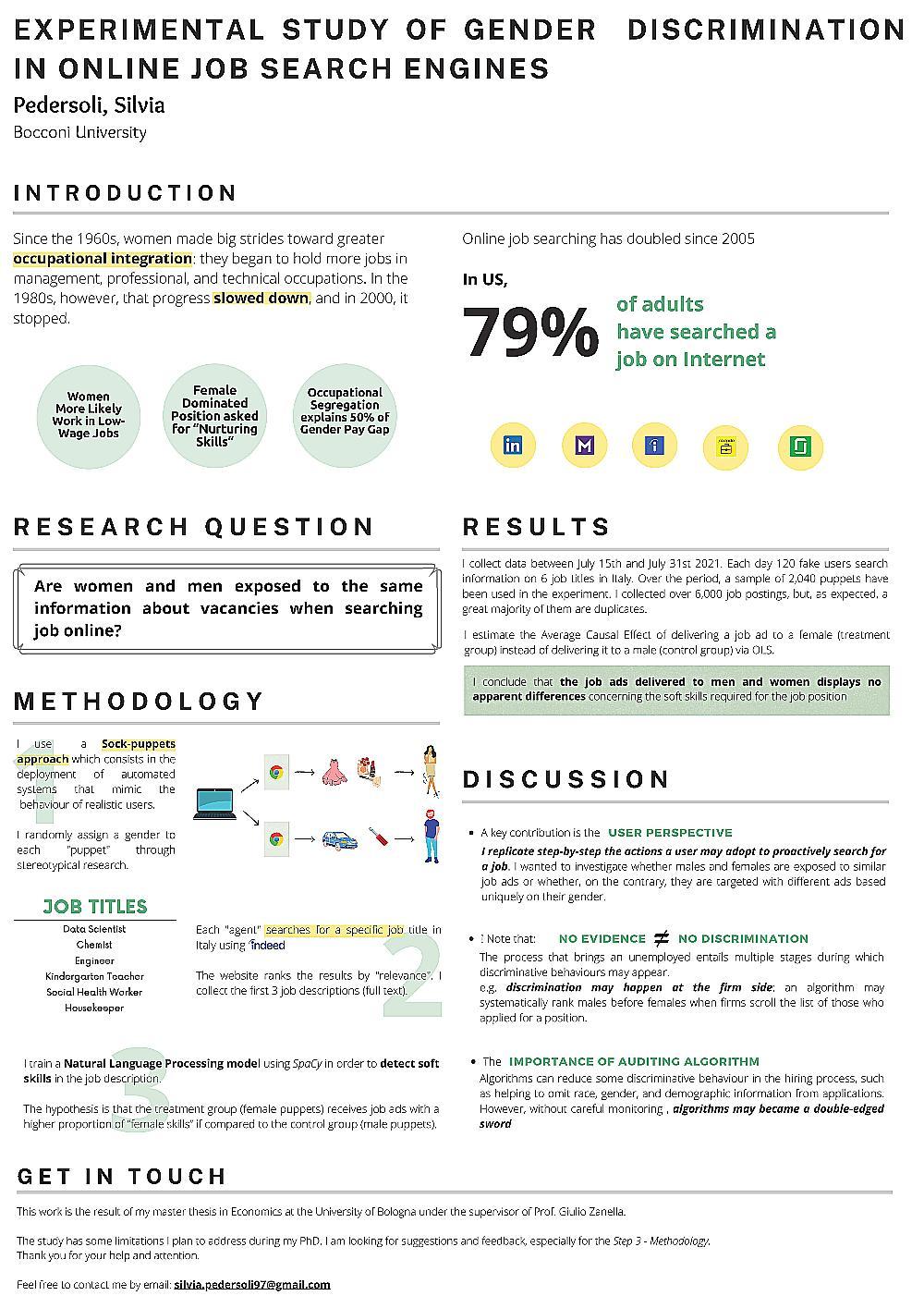
Soft Skills Have no Gender in Online Job Search Engines
Silvia Pedersoli, Research Assistant at CLEAN (Crime: Law and Economic Analysis), won a research grant for best poster at the Debugging (In)equality in Data Science workshop, held at LSE.
The award-winning poster, entitled "Experimental Study of Gender Discrimination
in Online Job Search Engines," investigates whether males and females are exposed to the same information about vacancies when searching for jobs online.
"My experiment aims to understand if algorithms used in job search engines, such as Indeed or LinkedIn, discriminate based on gender. The preliminary results show that the job ads delivered to men and women display no apparent differences, however, this is not sufficient to conclude that these algorithms are not able to discriminate. There is still work to do, but the workshop at LSE provides me interesting insights on how to improve my experiment," says Pedersoli.
The Debugging (In)equality in Data Science workshop was organized by LSE Data Science Institute (DSI) in partnership with the LSE International Inequalities Institute (III) and the Alan Turing Institute Post-Doctoral Enrichment Award.
The event showcased cutting-edge data science that explores, exposes, and tackles (in)equality. At the same time, the workshop enabled early career researchers and industry figures to bond over the goal of deploying practical and technologically ingenious solutions to inequality.
CLEAN is part of Bocconi's BAFFI-CAREFIN research center. It investigates criminal behavior employing detailed data and frontier quantitative methods. Specifically, CLEAN is interested in the activity of criminal organizations pursuing complex illicit businesses such as drug trafficking, corruption, and money laundering. 